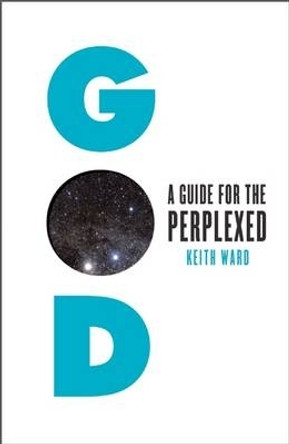Who is God? How should we think about the concept of God? How have religions shaped and altered various conceptions of God over time? Many use language about God which, if taken at face value, implies that he inhabits a human body (usually male) and walks and talks as we do. Yet to other traditions God is a genderless and spiritual form unconstrained by space or time. And while some people are firm in their faith in God, however conceived, many others are uncertain what they think--what they believe, what they think they know, and how much they think one can know rather than believe. Even among believers, there are many conceptions of God from different points in time and parts of the world--even within faiths. For readers who are puzzled by religion, it helps to have an entry point into this confusing range of possibilities. In this short and friendly guide, Leslie Stevenson walks the reader through eighteen conceptions of God, tracing how women and men have perceived him (or her) since the time of Abraham. As Stevenson acknowledges, there can be no such thing as a completely detached and neutral approach to this subject. Everyone has their own upbringing, life experiences, prejudices, and commitments to (or rejections of) the religious traditions they have encountered. Moreover, there are anciently-entrenched differences in different strands of Hinduism and Buddhism, as there are between and within Jewish, Christian, and Islamic monotheistic conceptions of God. By ranging over the thought of philosophers of religion like Feuerbach, Kant, Wittgenstein, Iris Murdoch, Simone Weil, Rudolf Otto, Martin Buber, and Abbe Louf, and practice of the Quakers, Stevenson unpacks difficult questions, including whether religious language refers to anything beyond human life, and whether God is a person (or an existing being of any sort), whether he changes over time, or can be spoken of at all. Drawing from his deep familiarity with religion and philosophy acquired over decades of scholarly work, Stevenson presents a richly informed and yet clear and accessible guide. Readers will come away with a profounder and more compassionate understanding of some of the varieties of experiencing or understanding the divine, a more critical grasp of their meaning, and an appreciation of how such views inspire people the world over.
About the AuthorLeslie Stevenson is Honorary Reader in Philosophy and Honorary Quaker Chaplain at St. Andrews University in Scotland, where he taught from 1968 to 2000. He is co-author of Thirteen Theories of Human Nature (Oxford University Press, 2017). and author of Inspirations from Kant (Oxford University Press, 2011), Open to New Light: An Introduction to Quaker Spirituality in Historical and Philosophical Context (Imprint Academic, 2012), The Many Faces of Science (Westview Press, 2000), and The Study of Human Nature (Oxford University Press, 1999).
ReviewsPhilosopher Leslie Stevenson offers a concise, lucid and irenic survey of approaches to the question of God. What does it mean to call God a person, or to say that God is simple? Does God exist independently of us? When believers say that God created the world, are they referring to an initiatory act or to an ongoing relationship to God which sustains the world at every moment? Stevenson is especially sensitive to both the power and the limitations of interpreting theology in metaphorical terms. Ranging widely, Stevenson occasionally misfires-he doesn't seem to grasp that Maimonides's version of negative theology, for example, is far more radical than that of Aquinas. But this is, on the whole, a beautiful little book overflowing with ideas for reflection and contemplation. * Christian Century *
Leslie Stevenson has written a clear, fair minded investigation into eighteen influential ways to think about God. Free from academic jargon, readers will be engaged by this refreshingly accessible work by the most distinguished living philosopher today who is also a practicing Quaker. Highly recommended to anyone interested in the existence or non-existence of God. * Charles Taliaferro, Professor of Philosophy; Department Chair of Philosophy, St. Olaf College *
This is a delightfully clear, critical but sympathetic, account of various ideas of God. Stevenson is always well worth reading. * Keith Ward, Professor of Philosophy, Christ Church, Oxford University *
Book InformationISBN 9780190066109
Author Leslie StevensonFormat Hardback
Page Count 208
Imprint Oxford University Press IncPublisher Oxford University Press Inc
Weight(grams) 318g
Dimensions(mm) 130mm * 180mm * 20mm





